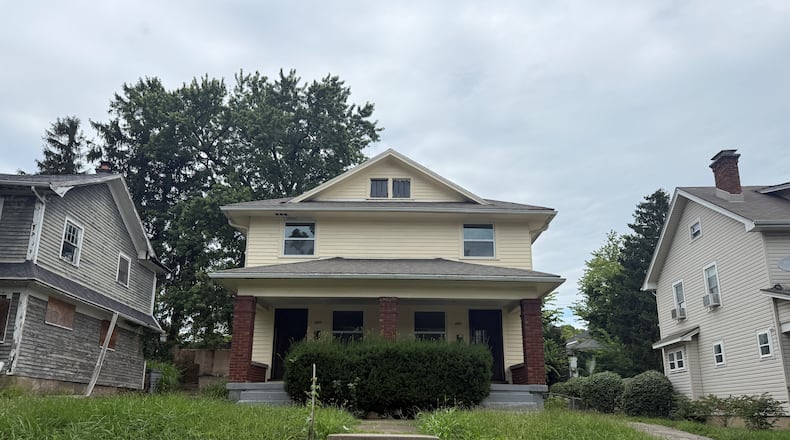“Civil penalty citations allows the city of Dayton to assess penalties for difficult to locate, vacant, nuisance or abandoned properties and owners,” she said.
Dayton’s civil penalty administrative process went live July 16. The city over the following couple of weeks issued about 702 civil penalty warning notices and 43 civil citations.
Penalty warnings and citations have been issued to properties that have code violations like overgrown vegetation, trash or debris in the yard and exterior maintenance problems.
Civil citations are issued by housing division conservation specialists and the city’s zoning administrator. Property owners receive a standard warning notice or a civil penalty warning notice before being cited for first-time violations.
Property owners have 10 days after receiving a warning to bring their properties into compliance with city code. If a code violation is not fixed after the 10-day period expires, owners can be cited, at which point they’ll have 20 days to either pay the fine or file for an administrative hearing.
Fines and penalties can escalate if they go unpaid because each day that a violation exists is considered a separate offense, Greg Parker, assistant city attorney, said last fall before the Dayton City Commission approved an ordinance creating the civil administrative process.
Parker said the city can recover unpaid civil fines by putting liens on properties.
Simpson said civil prosecution is a new tool that hopefully will get housing code violations remedied more quickly. Property owners whose properties have housing code violations can still face criminal citations.
Simpson said the overall goal is to improve neighborhood conditions and encourage responsible property ownership, while giving property owners an opportunity to correct violations.
The city says a major challenge with the criminal housing code enforcement system has always been that out-of-state owners and LLCs can ignore criminal citations with little consequence. They are ordered to appear in municipal court, but realistically there’s no way to make them show up, leaving housing code problems unaddressed, officials said.
Criminal cases cannot proceed until the defendant appears in court, and that may never happen. With civil citations, the cases can result in a default judgement if the defendants never appear in court.
Dayton City Commissioner Darryl Fairchild said he and Commissioner Shenise Turner-Sloss pushed the city for years to create this initiative. He said the goal has been to hold LLCs accountable, while also avoiding punishing low-income residents who are financially struggling and who do not have money to fix up their homes and properties.
City officials said there are programs and funding available to assist low-income and fixed-income residents with home repairs. Dayton’s Connections summer newsletter says that the city will proactively refer low-income property owners to resources and assistance programs to avoid burdening disadvantaged residents.
Commissioner Chris Shaw said it’s important to help struggling residents while ensuring that neighborhoods have minimum standards when it comes to aesthetics and quality of life.
About the Author


